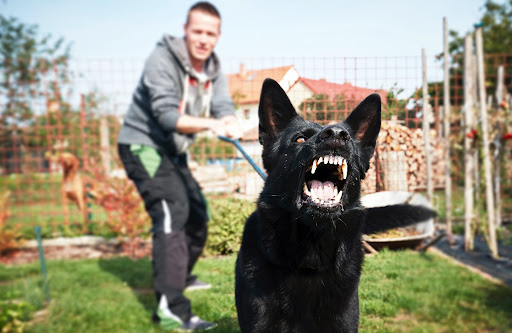It is not uncommon for homeowners to encounter HOA pet policies. While the initial reaction may be to question such policies, homeowners should understand that these policies do serve a purpose. Likewise, HOA boards should know how to create and enforce pet policies properly.
Understanding HOA Pet Policies
Homeowners associations are responsible for maintaining the community. Part of that job is enforcing strict rules to better the association and preserve property values. Rules can cover various topics, including but not limited to parking, noise, and even architectural rules.
Rules can also regulate pets in the community. In fact, homeowners association pet policies are rather common. Some associations enforce restrictions or limitations regarding pets, while others prohibit pets altogether. Whether or not an HOA has the power to enforce pet rules depends on two things: state laws and the governing documents.
In some states, associations are not allowed to prohibit pets or place certain restrictions. California is one example of this. Civil Code Section 4715 states that no HOAs can prohibit homeowners from keeping at least one pet.
Can an HOA restrict pets in Texas? Texas law does not address this issue. This is where an association’s governing documents come into play. If the CC&Rs contain pet rules, then the HOA board likely has the authority to enforce such rules.
While pet rules can vary from one community to another, here are sample HOA pet policies that you will commonly find:
- Limited to a certain number of pets
- Limited to certain types of pets (cats, dogs, etc.)
- HOA dog breed restrictions
- Restrictions on pet size or weight
How to Create and Enforce HOA Pet Rules
Apart from regulating the specifics, such as the number or types of pets a homeowner may keep, associations should create a pet policy to help maintain peace and order within the community. It is important to remember that these rules should be included in your governing documents. Otherwise, your board may not have the power to enforce them.
Here are the HOA pet policies you should consider.
1. Pet Registration
First, your HOA can require homeowners to register their pets with the association. Pet registrations will allow your board to keep track of the pets in the community. If one goes missing or gets lost, you immediately know who to return the pet to. This also helps you follow up on pet rule violations if any come up.
Make sure to create a standard pet registration form for owners to complete. This way, you can ask for the same information for all pets. You should also include a vaccination section to monitor which pets are up-to-date on their shots.
2. Pet Waste
One of the most prevalent issues pet-friendly communities face is animal waste. When left out in the open, particularly in common areas, animal waste can be hazardous – not to mention unsightly and foul-smelling.
As part of your HOA pet policies, ensure all owners must pick up after their pets. Homeowners should also dispose of animal waste correctly. If your budget permits, consider setting up bags and trash cans specifically for animal waste. This helps homeowners comply with the rules and is an added perk in your community.
3. Barking Rules
Regarding pet policies, specifically HOA dog rules, associations should factor in the possible noise. Dogs like to bark, sometimes during ungodly hours. Owners should keep their dogs from barking to maintain peace in the neighborhood.
Of course, it is completely normal for dogs to bark every once in a while. If the noise level becomes unbearable to neighbors or happens too frequently, there may be an underlying problem.
4. Leash Requirements
Keeping pets leashed is another thing to include in your homeowners association dog rules. Your association can require owners to keep their pets, particularly dogs, on a leash outside the home. This serves to protect other residents in the neighborhood.
Additionally, it can also help keep pets safe. It prevents dogs from attacking other animals or running into oncoming traffic. Even if a dog isn’t known to be aggressive, keeping them leashed in common areas will help make everyone feel secure.
5. Liability

Homeowners associations are always concerned about potential liability. It is one of the reasons why many HOAs opt to prohibit pets in the community.
A good way to circumvent this is to establish liability for pet owners. Have pet owners sign a statement indemnifying the association of any liability in case their pets cause trouble. Any injury, damage, or disturbance resulting from pets should be the responsibility of the pet owners.
In the same vein, pet owners should be prepared for the risk of liability. They should be responsible enough to prevent injury or damage. However, when injury or damage does occur, they should be ready to accept accountability.
6. Fines for Violations
Enforcing pet rules can be difficult without penalties. If your governing documents grant you the authority, consider charging fines for violations. Fines are an effective way to deter rulebreakers.
Moreover, make sure to follow proper protocols when issuing fines. State laws and your governing documents may require your board to arrange for a disciplinary hearing before fining a homeowner for a violation.
Can an HOA Deny Service Animals?
The Fair Housing Act mandates HOAs to provide reasonable accommodations for people with disabilities, among other things. This includes keeping a service animal. An association’s no-pets policy does not apply to service animals. Regarding service animals, restrictions concerning sizes, weights, and breeds are also generally not allowed.
That being said, certain homeowners association pet restrictions may still apply. For example, owners are still responsible for the actions of their service animals. Furthermore, an association may deny a service animal if it directly threatens the safety or health of other homeowners, and no other reasonable accommodation can fix it.
Since service animals can be a sensitive topic, HOA boards should seek the help of a lawyer. An HOA management company may also be able to help.
The Bottom Line
HOA pet policies can be tricky to enact and enforce. Even seasoned board members encounter challenges when it comes to pet restrictions. When in doubt, hiring a professional association management company for assistance is always a good idea.
Landmark Community Management provides expert services to HOAs and condos in Texas. Call us today at 512-569-5527 or contact us online to learn more!


